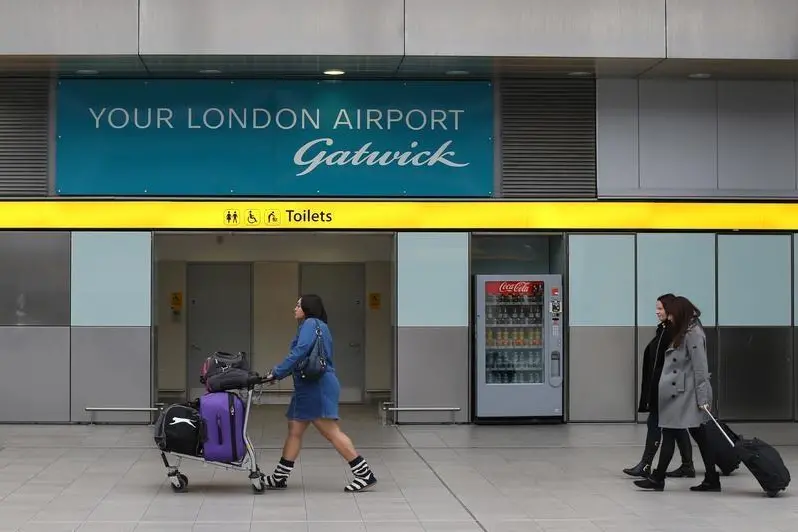PHOTO
Friday, Jun 24, 2016
Dubai: With Britain leaving the European Union, analysts expect fewer British holidaymakers to travel and spend money abroad.
After Britain voted to leave the EU in a referendum, the pound fell by as much as 11 per cent against the dollar on Friday, its lowest level in more than three decades, before recovering later in the day.
If the pound continues to sink, analysts expect that there will be fewer British tourists in the UAE (its dirham is pegged to the US dollar), as a holiday here will be more expensive for them. And this in turn is likely to take a toll on retail sales. The growth in UAE retail sales has already been slowing down in the past year due to the drop in oil prices and lower consumer confidence.
“Many renowned economists are forecasting [the UK] economy to slow down considerably and even go into recession, and the pound sterling to depreciate-15-20 per cent according to some analysts. In such a scenario, tourism arrivals from the UK to the UAE will most likely decline due to the tougher economic conditions and job losses as well as the currency depreciation, which will make the UAE more expensive for them. This will impact hotel occupancy levels, rates and profitability in the UAE as the UK is one of the top source markets to the country,” said Rashid Aboobacker, associate director at TRI Consulting.
Top source market
Tourism is a major driver of the UAE’s retail industry. The sector contributed Dh134 billion to the country’s GDP (gross domestic product) last year, the Minister of Economy, Sultan Bin Saeed Al Mansouri, said last April. The UK is among Dubai’s top 10 tourism source markets, with the number of visitors from there having grown by 10 per cent year-on-year in the first quarter of 2016, according to the Dubai Department of Tourism and Commerce Marketing.
Echoing Aboobacker’s views, Colin Beaton, managing director of retail consultancy Limelight Creative Services, said: “In the short term, we believe there will be minimal impact on UAE retailers from the Brexit other than perhaps fewer UK tourists if the British pound was to fall dramatically causing UAE good and services to increase in cost.”
Consultancy Euromonitor International, meanwhile, revised its forecast for the growth of the UAE retail industry this year downwards by 0.5 percentage points, from 4.8 per cent to 4.3 per cent, as a result of the Brexit, said Nikola Kosutic, research manager at the consultancy. The industry is expected to be valued at Dh200 billion this year.
Cheaper imports
A retail analyst, who did not want to be named, said that following the Brexit, the price of goods imported from the UK will be cheaper in the UAE, since import costs will be lower. “In the short term, with the pound dropping, people dealing with products bought in pounds will have a benefit with the price,” he said.
Limelight’s Beaton said the picture is less clear in the long term. “There are many issues that remain uncertain. The outcome of negotiations with the EU on new terms for trade deals, tariffs, labour agreements, and financial markets [among others], will determine the net impact of the UK economy,” he said.
While the UAE can expect fewer UK tourists, the UK is likely to see more travellers from abroad, including the UAE. The falling pound will make travel to the UK more affordable for people from other countries, as their currency would have greater purchasing power. UAE holidaymakers can buy more pounds with their dirham, which is pegged to the US dollar, making UK goods and services cheaper, Beaton said.
“In addition, without the requirement to satisfy the EU the UK would be free-and most likely would, in order to simulate growth-provide incentives and better terms for international trade. This would make UK products even more attractive,” he added.
By Sarah Algethami Staff Reporter
Gulf News 2016. All rights reserved.





















